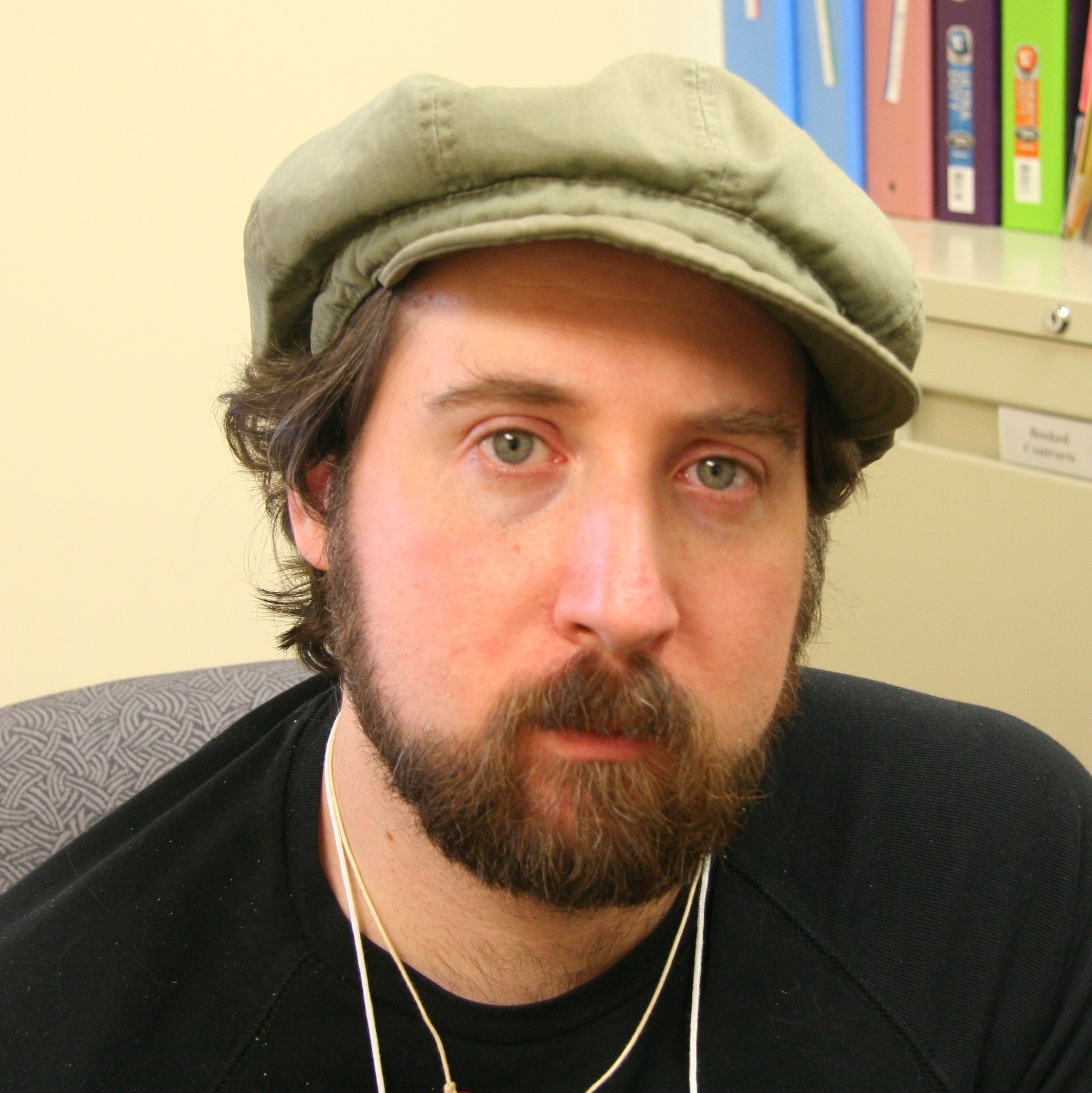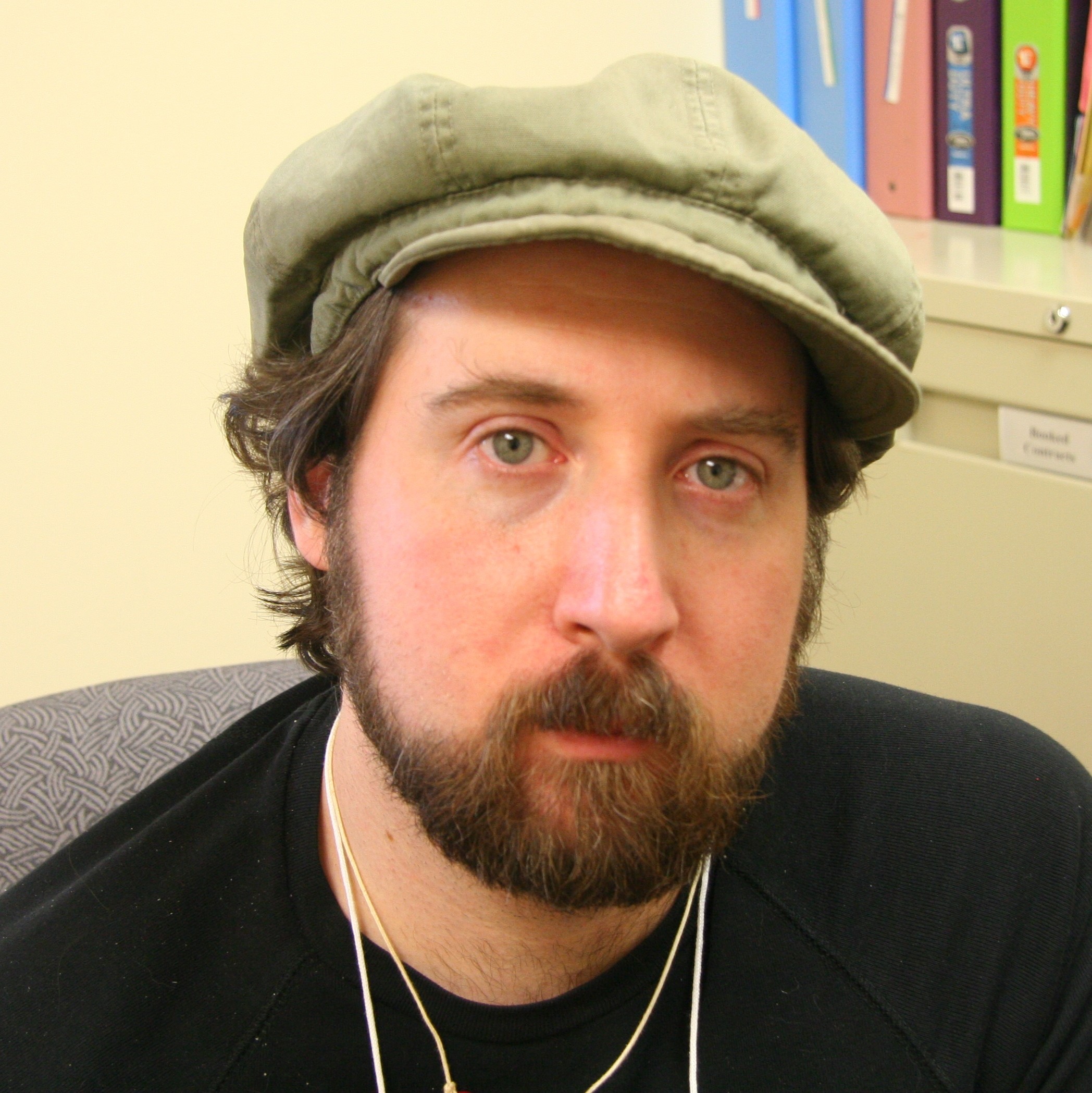Make your own Siddur: Keeping praxis personal through open-source prayerbooks
Prayerbooks are a unique technology adapted for specific use. In what way would you improve them for your use? What innovations would you offer for adoption, adaptation, and re-distribution in your community? The enhancement of human capabilities through tool design is a working definition of technology -- a definition that embraces social conventions, media, diagrammatic, and language tools as technologies just as much as any innovation in circuit design. As new lifeways emerge adapted to these tools, new designs are inspired, optimized for different circumstances and contexts. In this talk, we explain the purpose and role of an open-source Siddur for preserving historical and contemporary prayers and related work for use in the craft of new prayerbooks by practitioners and the study of prayer literature and praxis by scholars, students, and educators.
Aharon Varady is a Jewish Educator (JTSA/Davidson, 2013) and Community Planner (UC/DAAP, 2004) concerned with proprietary control of shared communal resources and with improving cultural fluency in the Jewish imagination. Besides directing the Open Siddur, an online and open-source prayerbook publishing project, he teaches Jewish myth and rabbinic lore through Midbar Quest, a guided adventure roleplaying game published through his libre Open Access independent publishing house, Dimus Parrhesia Press. In 2012, the Atlantic Magazine interviewed him on his advocacy for Open-source in Judaism.

Burn your Blessings: Media, Immediacy in Jewish prayer in the Mishnaic and the Digital Era
Prayers are a unique rhetorical form of communication. This talk concerns Jewish prayer as an ingredient of media in a praxis that may be personal or public, efficacious or performative, and utilized for theurgical or self-reflective purpose. In what form may prayers be preserved and reused? What is the life-cycle of a prayer as a physical object, as imagined in myth, and as an editable template? Are prayers inherently proprietary and if not, are they ever in danger of cultural appropriation? How might the aegis of copyright itself infringe on the presumptions of prayers as a rhetoric of parrhesia -- open, bold and honest speech.
Department of Geography Colloquium Series
"Geographies of transition and opportunity in Appalachia: rebuilding the economy from the ground up"
Coalfield Development operates a family of social enterprises in Central Appalachia. This talk will discuss how Coalfield Development is working to rebuild the regional economy through on-the-job training, education, and personal development. A specific focus will be placed on Refresh Appalachia, a social enterprise working to build a local food economy through farmer training, food hub development, and food access.
Ben Gilmer is president of Refresh Appalachia, a social enterprise of Coalfield Development. Ben has 15 years of experience in the non-profit, government, academic, and private sectors. Born and raised in Russell County, Virginia, his specialties include sustainable agriculture and food systems, economic and community development, natural resource management, and GIScience. He has worked on projects in the U.S., Latin America, Asia-Pacific, and the Caribbean. Ben has a Masters degree in Geography from West Virginia University and a BSc. degree in Geography from Radford University.
About Coalfield Development and Refresh Appalachia:
Coalfield Development operates a family of social enterprises in agriculture, solar, construction, woodworking, reclamation, and arts-based tourism. Coalfield Development's Refresh Appalachia is a regional economic and workforce development initiative to establish a training and development program that increases the success of farmers in Central Appalachia, strengthens local food systems, increases access to healthy food, and aggregates and distributes local products to regional markets.
Podcast Tutorial via SoundCloud
Colloquium: DUNE: The Hot Program in the Cold Detector
Neutrinos have come a long way in the human endeavor from their days as a ``desperate remedy.'' Their study now forms the cornerstone of the high energy physics program in the United States. The U.S. will play host to an international project called DUNE which will explore many of the most important open questions in neutrino physics. We discovered neutrino mass by doing long-distance quantum phase interferometry with large detectors that were both sensitive scientific instruments and exquisitely beautiful devices. DUNE will employ an enormous liquid argon time-projection chamber to make the most thorough measurements of neutrino oscillation phenomena ever undertaken. The large far detector will enable the exploration of a plethora of physical phenomena including nucleon decay and dark matter. After briefly discussing the history of neutrinos, I will describe the measurements we will make with DUNE and some physics opportunities we will have along the way.
Andy Steves' Europe: City Hopping on a Budget

UK Education Abroad welcomes influencer and travel blogger Andy Steves, son of author and TV personality Rick Steves, at 7 p.m. on Oct. 11 at the Kincaid Auditorium in the Gatton College of Business and Economics. The theme of his speech is “Andy Steves’ Europe: City-Hopping on a Budget.” Steves will discuss his philosophy on travel and his first-hand experience with education abroad. He will share his insights and practical travel tips learned from his life on the road in Europe, as well as other tools and tricks that will allow students (and other travelers) to maximize their time, money and fun while they seek to create unforgettable experiences during their time abroad. Students, faculty, staff and community members of all ages will learn how to travel on a budget (and still have a great time), how to immerse themselves into a new culture and how to tailor their adventures to their own academic, cultural and social interests.
More details about the event: http://www.uky.edu/international/node/1731
Zika, Mosquitoes, and Public Health: Relearning History Again
Zika is the fifth mosquito-borne pandemic to rage across the Americas in just the past 15 years. The reasons for these pandemics include increased human travel, increased urbanization, decreased living standards in metropolitan areas, and a de-emphasis on vector management. In this presentation, Dr. Brown will examine these pandemics and dwell in particular on Zika, discussing the pathogen itself, its vectors, the transmission cycle, and the catastrophic human costs.
Zika will not be the last of vectored epidemics; more will be coming with increasing frequency in the coming years. The solutions to stopping these outbreaks is improved vector management that, in the U.S., is almost always conducted by public health agencies. Dr. Brown will describe the model program, including surveillance methods, vector suppressional methods, outbreak intervention methods, and community participatory components for outbreak prevention.
RSVP: https://redcap.uky.edu/redcap/surveys/?s=JRJRKPAC3Y
Authors Debate: Is Utopia Flawed or Flawless
By Gail Hairston
